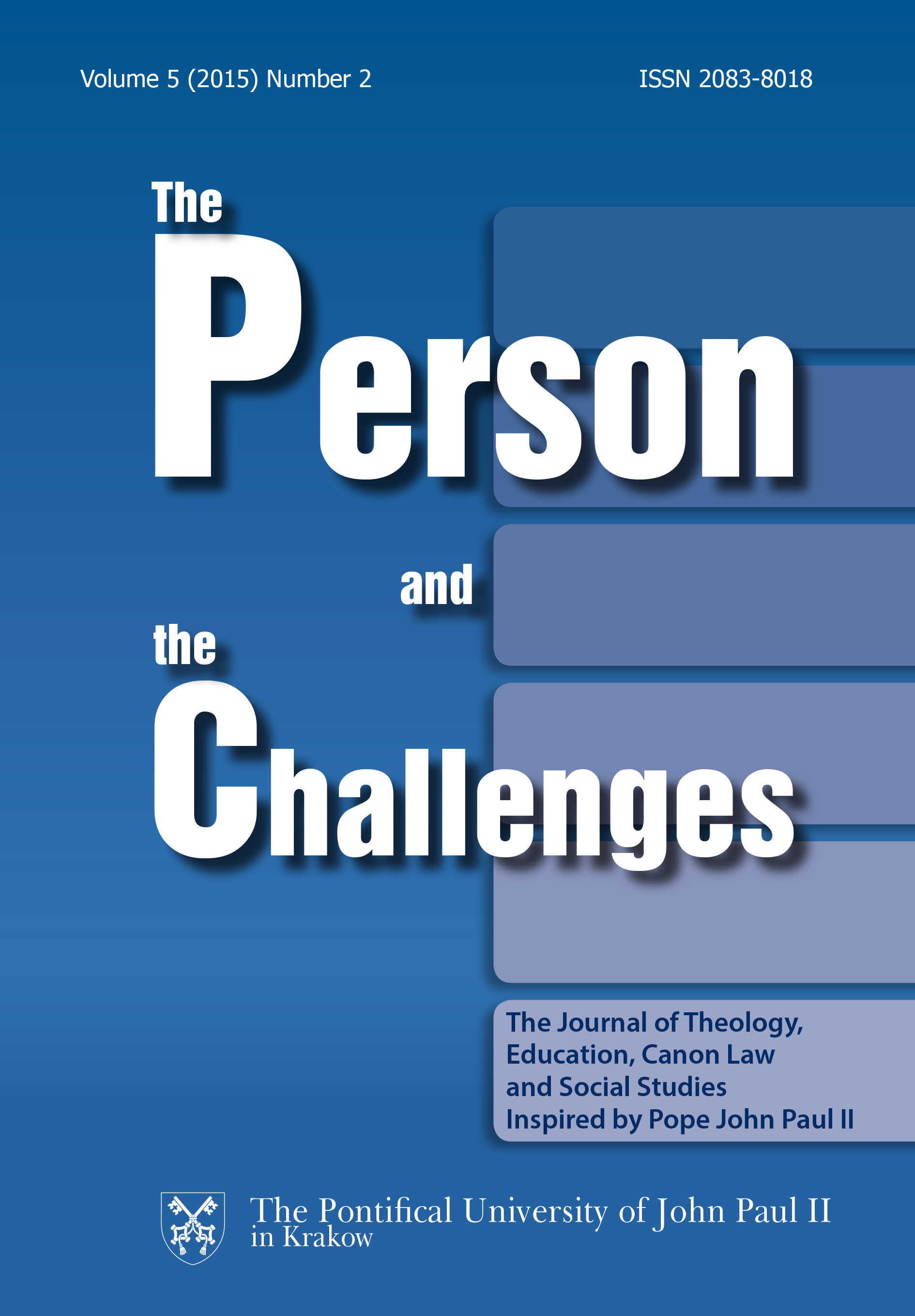The Importance of Family Support in the Process of the Adjustment of Current and Former Prisoners
DOI:
https://doi.org/10.15633/pch.1529Słowa kluczowe:
Families of prisoners, family support, support for prisoners, support for former prisoners, the adaptation of prisonersAbstrakt
The research presented in this paper seeks answers to two questions: What is the impact of perceived support from different actors (including family members) in a situation where problems are encountered in readapting those who have been punished by incarceration? What is the impact of perceived support from different actors (including family members) in achieving the objectives in readapting those who have been punished by incarceration? The answers to these questions are given on the basis of the results obtained by examining 296 men punished by incarceration, who on account of two criteria (location and level of adaptation), were divided into 4 groups: former prisoners with high levels of adaptation, current prisoners with high levels of adaptation, current prisoners with low levels of adaptation and former prisoners with low levels of adaptation. In the determination of the level of adaptation, in the overall result, the RISB Sentence Completion Test by J. Rotter was used, while the sources of support were studied, using the Social Support Rating Questionnaire by I. Niewiadomska.Based on these results, it may be concluded that perceived family support in overcoming problems and achieving goals – i.e. from the mother, father, siblings, fiancée/wife, relatives – does not contribute to a high level of adaptation, for those who been punished by incarceration, in both current and former prisoners. It is only low-intensely perceived help from one’s siblings and fiancée/wife’s life, which leads to a reduction of the capabilities for adaptation in people who are currently imprisoned.
Bibliografia
Braithwaite J., Crime, shame and reintegration, Cambridge 1989, University Press.
Clements C., Offender classification: Two decades of progress, “Criminal Justice and Behavior” 23 (1996), p. 121–143.
Coleman J., Foundations of Social Theory, Harvard 1990, University Press.
Dynia P., Sung H., The Safety and Effectiveness of Diverting Felony Drug Offenders to Residential Treatment as Measured by Recidivism, “Criminal Justice Policy Review” 4 (2000), p. 299–311.
Fel S., Furtak A., Status i znaczenie rodziny dla gospodarki w ustroju wolnorynkowym, “Family Forum. Problemy współczesnej rodziny” 1 (2011), p. 111–131.
Ferguson G., Tkane Z., Analiza statystyczna w psychologii i pedagogice, Warszawa 1997, Wyd. Nauk. PWN.
Gautschi T., History Effects in Social Dilemma Situations, “Rationality and Society” 2 (2000), p. 131–162.
Geiger B., Fischer M., Naming Oneself Criminal: Gender Difference in Offenders’ Identity Negotiation, “International Journal of Offender Therapy and Comparative Criminology” 2 (2005), p. 194–209.
Jaworowska A., Matczak A., Test Niedokończonych Zdań Rottera (RISP). Podręcznik, Warszawa 1998, PTP.
Jessor R., Successful adolescent development among youth in high-risk settings, “American Psychologist” 48 (1993), p. 117–126.
Kmiecik-Baran K., Skala wsparcia społecznego. Teoria i właściwości psychometryczne, “Przegląd Psychologiczny” 1–2 (1995), p. 201–214.
Koole S., Jager W., Berg A., Vlek C., Hofstee W., On the Social Nature of Personality: Effects of Extraversion, Agreeableness, and Feedback about Collective Resource Use on Cooperation in a Resource Dilemma, “Society for Personality and Social Psychology” 3 (2001), p. 289–301.
Makkai T., Braithwaite J., Reintegrative shaming and compliance with regulatory standards, “Criminology” 32 (1994), p. 361–383.
Matczak A., Jaworowska A., Test Niedokończonych Zdań Rottera RISB. Aneks do podręcznika. Normalizacja dla osób dorosłych, Warszawa 2003, PTP.
Niewiadomska I., Osobowościowe uwarunkowania skuteczności kary pozbawienia wolności, Lublin 2007, Wyd. KUL.
Niewiadomska I., Zakorzenianie społeczne więźniów, Lublin 2011, Wyd. KUL.
Niewiadomska I., Chwaszcz J., Jak skutecznie zapobiegac karierze przestępczej?, Lublin 2010, Wyd. Zonik i ska.
Radochoński M., Osobowość antyspołeczna. Geneza, rozwój i obraz kliniczny, Rzeszów 2000, Wyd. WSP.
Sęk H., Rola wsparcia społecznego w sytuacji kryzysu, in: D. Kubacka-Jasiecka, T. Ostrowski (eds.), Psychologiczny wymiar zdrowia, kryzysu i choroby, Kraków 2005, Wyd. UJ, p. 87–107.
Sęk H., Rola wsparcia społecznego w sytuacjach stresu życiowego. O dopasowaniu wsparcia do wydarzeń stresowych, in: H. Sęk, R. Cieślak (eds.), Wsparcie społeczne, stres i zdrowie, Warszawa 2004, Wyd. Nauk. PWN, p. 49–67.
Sęk H., Cieślak R., Wsparcie społeczne – sposoby definiowania, rodzaje i źródła wsparcia, wybrane koncepcje teoretyczne, in: H. Sęk, R. Cieślak (eds.), Wsparcie społeczne, stres i zdrowie, Warszawa 2004, Wyd. Nauk. PWN, p. 11–28.
Simourd L., Andrews D., Correlates of delinquency: A look at gender differences, “Forum on Corrections Research” 6 (1994), p. 26–31.
Szymanowska A., Więzienie i co dalej, Warszawa 2003, Wyd. Akadem. “Żak”.
Wright J., Cullen F., Miller J., Family social capital and delinquent involvement, “Journal of Criminal Justice” 1 (2001), p. 1–9.
Zhang L., Zhang S., Reintegrative Shaming and Predatory Delinquency, “Journal of Research Crime and Delinquency” 4 (2004), p. 433–453.
Pobrania
Opublikowane
Numer
Dział
Licencja
Prawa autorskie (c) 2015 Iwona; Stanisław Niewiadomska; Fel

Utwór dostępny jest na licencji Creative Commons Uznanie autorstwa 4.0 Międzynarodowe.
Twórca oświadcza, że służą mu prawa autorskie do utworu i że nie są ograniczone w zakresie objętym niniejszym oświadczeniem oraz że utwór jest dziełem oryginalnym i nie narusza praw autorskich innych osób.
Twórca zezwala Uniwersytetowi Papieskiemu Jana Pawła II w Krakowie na nieodpłatne, niewyłączne i nieograniczone w czasie korzystanie z utworu, to jest:
- utrwalanie i zwielokrotnianie: wytwarzanie egzemplarzy utworu techniką drukarską, reprograficzną, zapisu magnetycznego oraz techniką cyfrową;
- obrotu oryginałem albo egzemplarzami, na których utwór utrwalono (wprowadzanie do obrotu, użyczenie lub najem oryginału albo egzemplarzy, publiczne wystawienie, wyświetlenie, a także publiczne udostępnianie utworu w taki sposób, aby każdy mógł mieć do niego dostęp w miejscu i w czasie przez siebie wybranym);
- włączenie utworu w skład utworu zbiorowego;
- udzielanie przez Uniwersytet Papieski Jana Pawła II w Krakowie sublicencji Creative Commons Uznanie autorstwa 4.0 Międzynarodowe (CC BY 4.0)
Uniwersytet Papieski Jana Pawła II w Krakowie udostępnia utwór na Platformie Czasopism należącej do uczelni, na licencji Creative Commons Uznanie autorstwa 4.0 Międzynarodowe (CC BY 4.0). Tym samym uprawnia wszystkich zainteresowanych do korzystania z utworu pod następującymi warunkami:
- zostanie podany autor i tytuł utworu,
- zostanie podane miejsce publikacji (tytuł czasopisma i adres internetowy do oryginalnie opublikowanego utworu).

